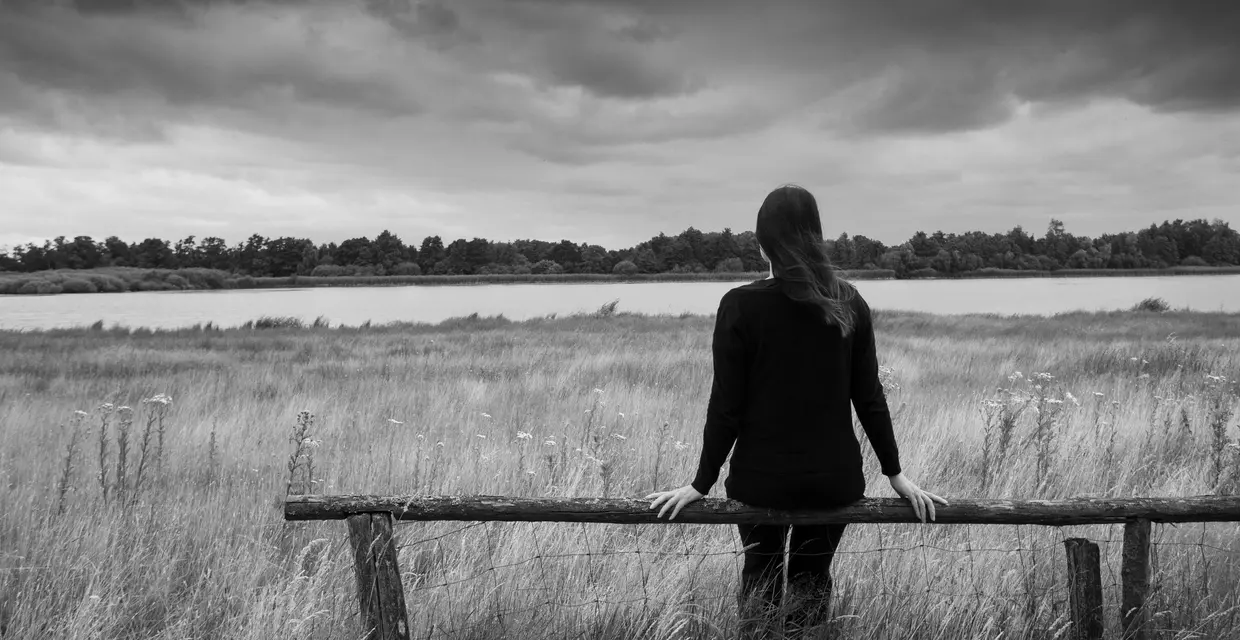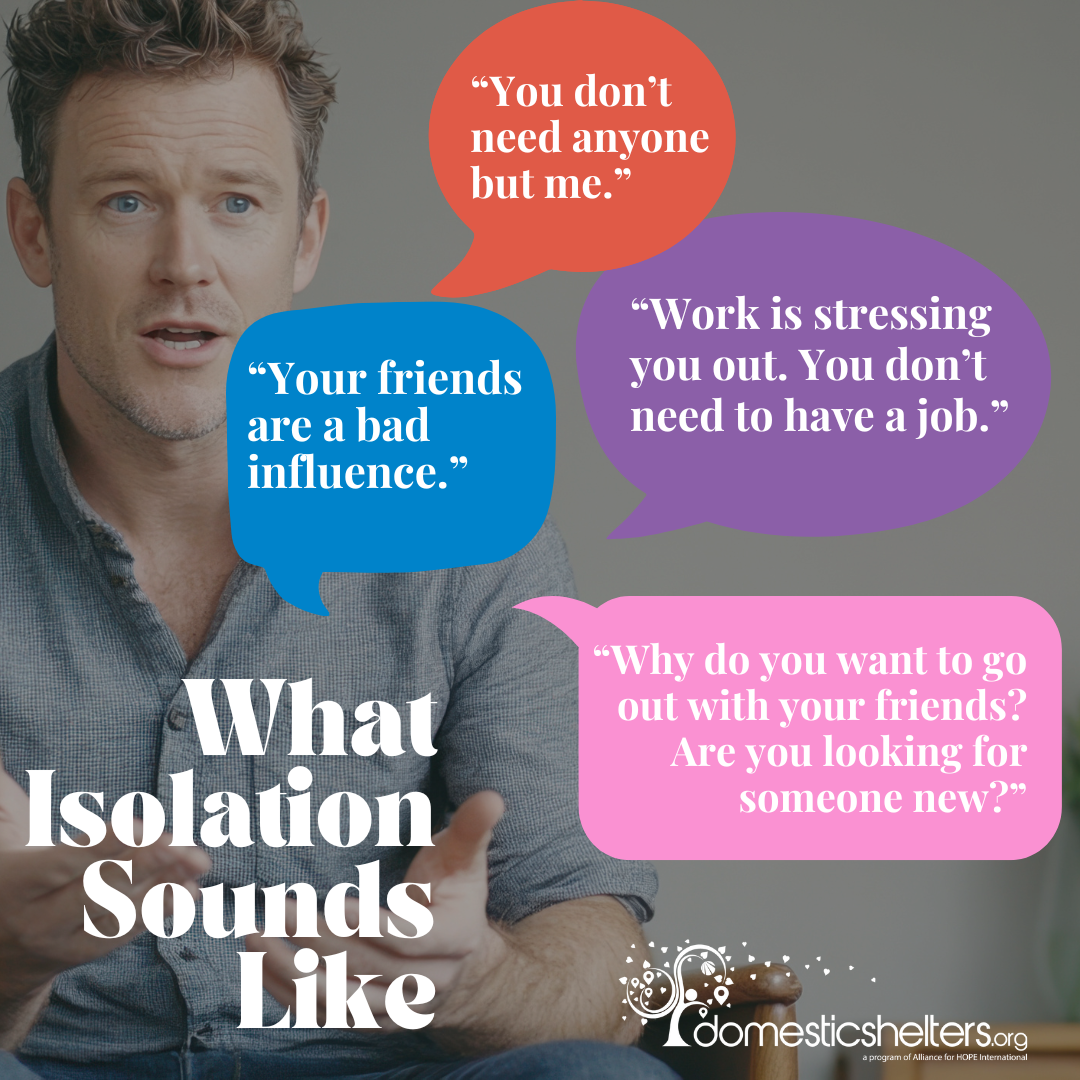1. Select a discrete app icon.

notes
Survivors in Isolation: Abusers Separate Victims from Everyone for Power and Control
Restricting connections to friends, family, work and healthcare makes survivors dependent on abusers
- Aug 11, 2025

Key Takeaways:
- Isolation is a powerful abuse tactic—abusers cut survivors off from friends, family, work and healthcare to gain control and make them dependent.
- Emotional and mental health suffer under isolation, leading survivors to doubt themselves, believe false narratives and feel undeserving of help.
- Support and reconnection are vital—trust your instincts, document the abuse and reach out to someone you trust or a professional for help. You're not alone.
If you’re with an abusive partner, or suspect you may be with an abusive partner, there’s a good chance you’re feeling cut off from everyone else outside your relationship. Isolation is a deliberate tactic abusers use to control survivors. It’s a form of emotional abuse, and it can make a survivor feel like they’re the only ones going through abuse. That’s because cutting a survivor off from people who care about them, and who might point out the abuse, makes it easier for abusers to take control. Isolation makes it harder for survivors to leave.
“As humans, we tend to believe what we are told if we hear it enough times. If an abuser repeatedly tells you that you don’t deserve better, no one loves you, and that the abuser is all you have left, you will believe it. This gives the abuser power,” says Shariq Refai, MD, a board-certified psychiatrist at shrinkMD.
How Does an Abuser Use Isolation to Gain Power and Control?
Isolation gives the abuser the opportunity to control the story. “Someone looking in from the outside would be better able to understand coercive control and violence, but the isolated person is susceptible to the abuser's explanations and false narratives,” says Christine Gibson, MD, a family physician and trauma therapist.
Isolation cuts off your lifelines and separates you from people who care about you, so you become susceptible to the explanations and false narratives you hear. You can’t:
- Hear what your friends, family or coworkers think
- Get outside support
- See things from someone else’s perspective
“You hear a single story about why you are being abused, typically that you are to blame or are deserving of it,” Dr. Gibson said. “If you were in contact with loving, supportive people, you’d have an alternate explanation of what's going on, one that’s more realistic and compassionate. The power comes from controlling not just behavior and emotional responses, but also the narrative about why it's happening.”
What Will Isolation Do to a Survivor’s Mental Health?
When you’re isolated, you start to doubt yourself and your own judgment. You stop trusting yourself. Your mental health and your quality of life suffer.
“You may feel anxious, depressed, confused and wildly unsure if your instincts are even valid anymore,” says Veronica West, a psychologist and founder of My Thriving Mind. It can feel like you’re being gaslighted constantly. It’s weaponized loneliness.
Isolation cuts you off from the support system that could give you emotional comfort. “Taking away [your support system] makes it more likely that mental health will worsen,” said Dr. Gibson.
With isolation, you could develop depression, anxiety or complex trauma, or these conditions could get worse. Poor mental health may alter your judgment and make you believe you are alone and unloved and that you deserve the abuse. “This allows the abuser to keep the victim in the cycle of abuse,” Dr. Refai says.
What Does Isolation Sound Like?
“Isolation doesn’t usually come in swinging with a neon sign that says, ‘Abuse here!’ No — it tiptoes in with charm and concern,” West says. She gives some examples of what an abuser may say to begin to isolate you:
- “Your friends are a bad influence.”
- “Work is stressing you out.”
- “You don’t need anyone but me.”
At first, you might be flattered that your partner wants you all to themselves. But within a few months, you may find that your support system has dwindled.

Isolation doesn’t necessarily mean you’re confined, or you don’t have access to your phone. It’s often sneakier. And it typically worsens over time, limiting connections until it seems easier to just stay home.
Here are some isolating tactics abusers may try:
Discouraging or Questioning Existing Relationships
- "Why are you always texting them?”
- "Why do you need to spend time with them? Aren't I enough for you?"
- "Why do you want to go out with your friends? Are you looking for someone new?"
“This puts the survivor on the defensive, forcing them to justify their basic need for relationships,” said Catrina Drinning-Davis, a licensed professional counselor based in Cunningham, Texas.
Suggesting That You Relocate
- "We should move somewhere fresh, just the two of us."
“This is a way to cut off your entire life and start a cult of two,” West said.
Controlling Work and Finances
- "You don’t need to work — I’ve got us covered."
This isolation tactic is linked with financial abuse. “Abusers often create situations where the victim lives in the abuser's home, relies on them financially and has no outside support,” Dr. Refai said.
Limiting Access to Appointments and Activities
- "Do you really need that doctor’s appointment?"
- “I’m too busy to watch the kids.”
An abuser might prevent you from going to therapy or school or even running errands alone — anything that connects you to the outside world.
Monitoring Technology and Communication
- “I’m taking your cell phone.”
- “You can visit your family but I’m going to text you every 15 minutes.”
- “Video chat me when you’re there so I can see where you are.”
“It becomes embarrassing and uncomfortable for everyone, so survivors just stop going [out],” said Drinning-Davis.
What Can You Do If You Realize You’re Being Isolated?
If you recognize that your social circle has been significantly reduced, try to take these steps:
- Trust Your Instincts
If you suspect that isolation is beginning, trust your gut. “Your intuition is sending a strong message,” Dr. Gibson said. Be realistic and honest with yourself. If you find yourself hiding things from friends, family or healthcare professionals, ask yourself why you are protecting the abuser. - Don't Blame Yourself
“Isolation works because it's gradual and wrapped in emotional camouflage,” West said. You were strategically isolated, you didn’t “fall for it." If you realize you are being isolated, it is not your fault. Isolation, like other types of abuse, happens slowly and sneaks up on you. - Document the Pattern
Safely write down or make an electronic note of what is happening. Seeing the words can be a reality check. - Reconnect Safely
“Phone a friend carefully and reconnect with someone you trust, even just for a chat. Small reconnections matter,” West said.
Get Help
When you’re isolated, you feel alone. You might start to believe that your current situation is the best you can hope for. You are not alone. People are ready and willing to help you improve your life.
“Once you realize you are being abused, it can feel scary, especially if you have been isolated. The first thing is to find someone you trust and seek support,” said Kamini Wood, a human potential coach.
Reach out to professionals. Hotlines and domestic violence organizations are trained and ready to help. Finding a therapist or coach with experience in abuse recovery can also help you rebuild yourself.
What Can Others Do?
If someone you care about isn’t in touch with you much anymore, question whether they might be isolated by their partner. Keep the door open so they can reach out when they’re ready. Be supportive and offer to listen.
Donate and change a life
Your support gives hope and help to victims of domestic violence every day.







